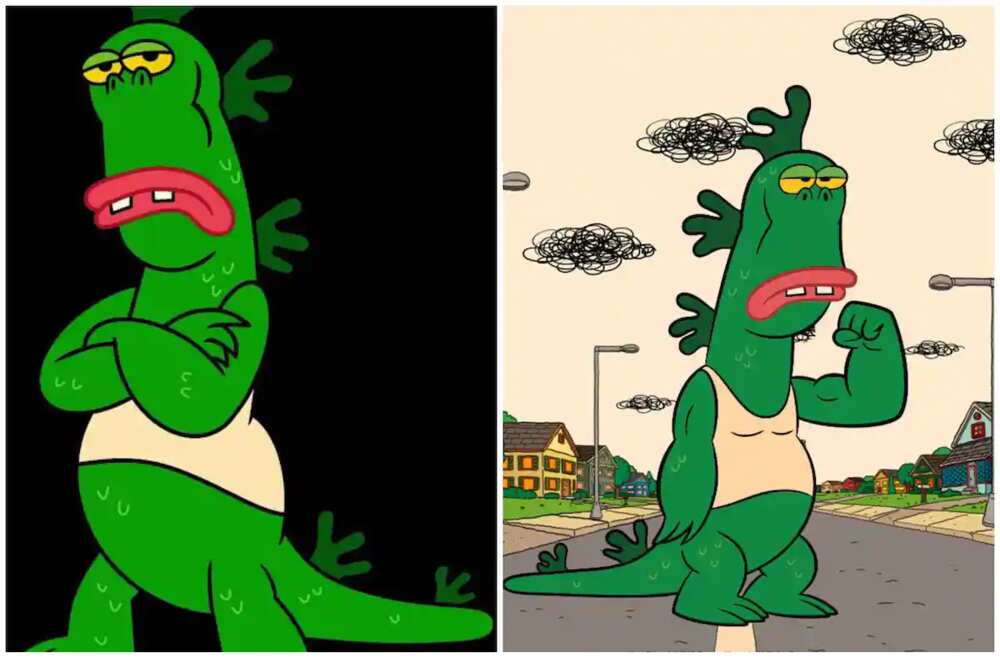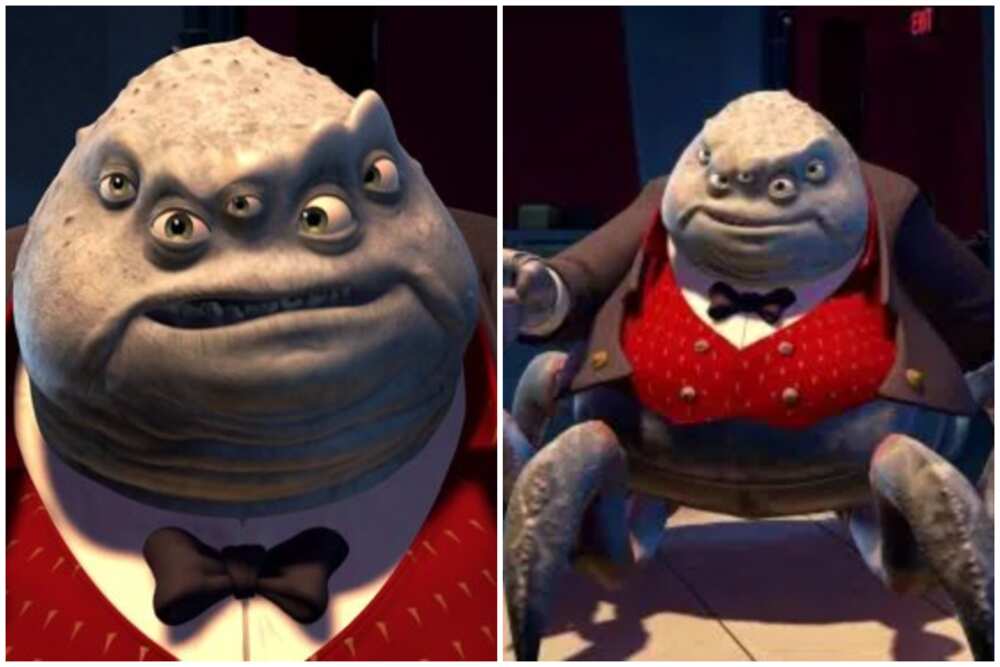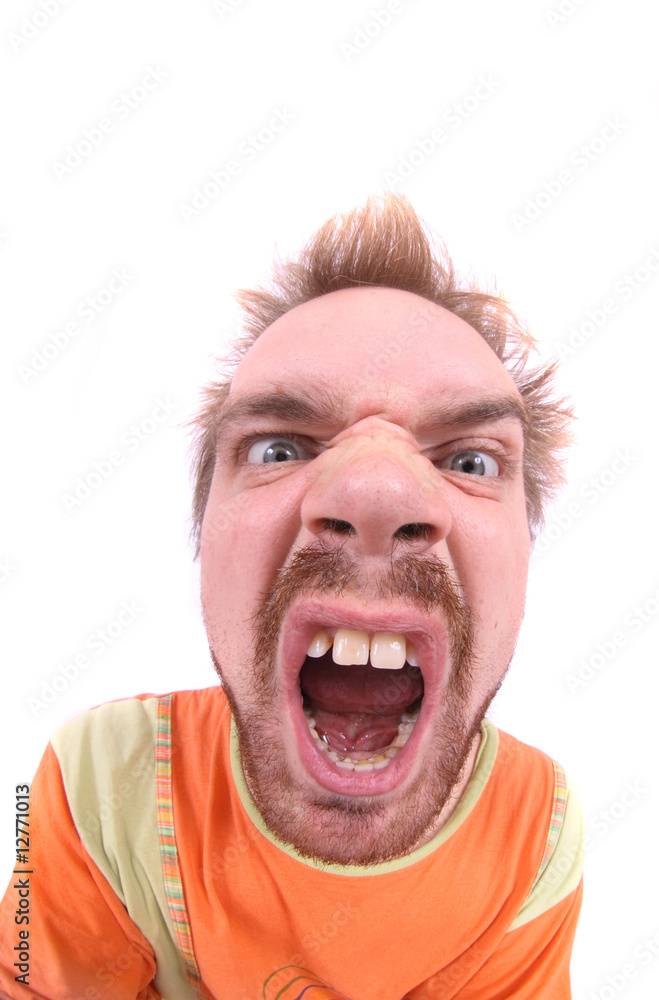Let's face it, the world of storytelling often revolves around the handsome prince or the dashing hero. But what about those ugly male characters? Yeah, you heard me right—ugly. These characters, despite their lack of conventional good looks, bring depth, complexity, and layers to the narrative that no pretty face ever could. They remind us that beauty isn't just skin-deep, and sometimes, the most compelling stories come from the characters who challenge our perceptions.
Now, I know what you're thinking—ugly male characters? Isn't that a bit harsh? Well, maybe. But hear me out. These characters aren't just here to be the punchline of a joke. They're here to teach us something valuable about humanity, about flaws, and about how those imperfections can make us more relatable and real. So, buckle up because we're diving deep into the world of characters who aren't exactly poster boys for a skincare ad.
In this article, we'll explore why ugly male characters matter, how they've evolved over time, and why they deserve a spot in the limelight. Because let's be honest, not every story needs a guy with abs that could cut glass. Sometimes, it's the imperfect ones who leave the most lasting impression.
Read also:What Does Nfs Mean In Text A Deep Dive Into The World Of Modern Messaging
Why Are Ugly Male Characters Important?
So, why do we even need ugly male characters in the first place? Well, my friend, the answer is simple. They add authenticity to the story. Not everyone in real life looks like a Greek god, and it's refreshing to see characters who reflect that truth. Ugly male characters challenge the stereotype that only the good-looking ones get to have meaningful storylines or character development.
Moreover, they often carry a depth that their more attractive counterparts might lack. Think about it. When a character is described as "ugly," it automatically raises questions. Why is he ugly? Does it matter? And more importantly, how does his appearance affect his journey? These questions lead to richer storytelling and more engaging narratives.
Breaking Stereotypes
Ugly male characters break the mold of traditional masculinity. They show us that strength isn't always physical, and charm isn't always tied to looks. Characters like Quasimodo from "The Hunchback of Notre Dame" or Yoda from "Star Wars" remind us that true power comes from within. Their stories teach us that being different or unconventional doesn't mean being less valuable.
Let me give you a little heads up—these characters often carry emotional weight that resonates with audiences. They're the underdogs, the outsiders, and sometimes, the ones who end up winning our hearts. Who wouldn't root for someone who's been underestimated their whole life?
Evolution of Ugly Male Characters
Back in the day, ugly male characters were mostly used as villains. You know the drill—ugly equals evil, right? But over the years, writers and creators have started to realize that these characters deserve more than just being the bad guy. Nowadays, we see them taking on roles as protagonists, sidekicks, and even love interests. It's a shift that reflects a broader understanding of human complexity.
This evolution is crucial because it shows that stories can be about so much more than just physical appearances. Ugly male characters are now celebrated for their wit, intelligence, and resilience. They're proving that beauty comes in all shapes and forms, and sometimes, the most beautiful stories are the ones that don't rely on conventional attractiveness.
Read also:Unlocking The Secrets Of Pcode Com Ng A Deep Dive Into Its World
Modern-Day Ugly Male Characters
In today's media landscape, we're seeing a rise in ugly male characters who defy expectations. Characters like Tyrion Lannister from "Game of Thrones" or Walter White from "Breaking Bad" are perfect examples. They're complex, flawed, and oh-so-human. Their stories resonate with audiences because they feel real. They remind us that life isn't always picture-perfect, and that's okay.
And let's not forget about the humor that comes with these characters. Sometimes, their "ugliness" is played for laughs, but in a way that's endearing rather than offensive. Think about Pugsley from "The Addams Family" or Shrek from the animated movie. Their quirks and imperfections make them lovable in their own unique ways.
How Ugly Male Characters Impact Storytelling
Ugly male characters have a profound impact on storytelling. They add layers to the narrative that wouldn't be there otherwise. For one, they challenge the audience's expectations. When you introduce an ugly character into a story, you immediately create tension. Will they be the villain? The hero? The love interest? The possibilities are endless, and that keeps readers and viewers engaged.
They also provide opportunities for character growth. Think about how a character's appearance affects their relationships, their self-esteem, and their journey. It's a rich vein of storytelling that can lead to some truly memorable moments. Plus, when an ugly character finds love or triumphs against all odds, it's all the more satisfying because we've rooted for them every step of the way.
Character Arcs and Development
The character arcs of ugly male characters are often more dynamic than those of their more attractive counterparts. They have to overcome societal prejudices, internalize their worth, and prove themselves in ways that others don't. This journey is what makes them so compelling. It's not just about the end goal—it's about the struggle to get there.
Take, for example, the character of Beast from "Beauty and the Beast." His transformation from a monster to a man is symbolic of the inner beauty that lies beneath the surface. It's a story that resonates with audiences of all ages because it speaks to the universal truth that appearances can be deceiving.
Psychology Behind Ugly Male Characters
There's a fascinating psychology behind why we're drawn to ugly male characters. It's not just about their looks—it's about what they represent. These characters often embody traits that are universally admired, such as courage, loyalty, and determination. They remind us that true strength comes from within, and that external appearances are just a small part of the equation.
Moreover, they challenge our biases. We live in a world where beauty is often equated with success, but ugly male characters prove that this isn't always the case. They show us that it's possible to be successful, loved, and respected without conforming to societal standards of attractiveness.
Challenging Societal Norms
Ugly male characters are at the forefront of challenging societal norms. They question why we value certain traits over others and encourage us to rethink our definitions of beauty. By embracing characters who don't fit the mold, we're opening the door to more diverse and inclusive storytelling.
And let's not forget about the impact they have on younger audiences. When kids see characters who look different or act differently, it helps them understand that everyone has value. It teaches them to look beyond surface-level appearances and appreciate people for who they are, not just how they look.
Ugly Male Characters in Literature
Literature is filled with examples of ugly male characters who have left a lasting impression on readers. From Victor Hugo's Quasimodo to Charles Dickens' Fagin, these characters have become cultural icons. They've taught us that beauty isn't just about looks—it's about character, actions, and intentions.
These literary figures often serve as a reflection of the times in which they were written. They highlight the societal issues of their era and offer commentary on the human condition. Whether it's through their struggles or their triumphs, ugly male characters in literature continue to inspire and educate readers of all ages.
Famous Ugly Male Characters in Books
Here are some of the most famous ugly male characters in literature:
- Quasimodo from "The Hunchback of Notre Dame"
- Fagin from "Oliver Twist"
- Mr. Rochester from "Jane Eyre"
- Dr. Frankenstein from "Frankenstein"
- Beast from "Beauty and the Beast"
Each of these characters brings something unique to the table. They challenge our perceptions, evoke empathy, and leave a lasting impact on our hearts and minds.
Ugly Male Characters in Movies and TV
The world of movies and TV has also embraced ugly male characters in a big way. From Shrek to Tyrion Lannister, these characters have become household names. They've shown us that being different isn't a flaw—it's a strength. And in doing so, they've changed the way we think about beauty and attractiveness.
These characters often have the best lines, the most memorable moments, and the deepest emotional connections. They remind us that it's not about how you look—it's about how you make others feel. And let's be honest, who wouldn't want to hang out with a character who's got personality to spare?
Iconic Ugly Male Characters on Screen
Here are some iconic ugly male characters from movies and TV:
- Tyrion Lannister from "Game of Thrones"
- Shrek from "Shrek"
- Walter White from "Breaking Bad"
- Beast from "Beauty and the Beast"
- Yoda from "Star Wars"
These characters have become cultural touchstones, proving that ugly male characters can be just as compelling, if not more so, than their more attractive counterparts.
Conclusion: Embracing the Ugly Male Characters
In conclusion, ugly male characters are more than just a plot device or a punchline. They're a vital part of storytelling that adds depth, complexity, and authenticity to the narrative. They challenge our perceptions, evoke empathy, and remind us that beauty comes in all shapes and forms.
So, the next time you come across an ugly male character in a book, movie, or TV show, take a moment to appreciate them. They might just surprise you with their wit, charm, and heart. And who knows? You might even find yourself rooting for them every step of the way.
Now, it's your turn. Have you got a favorite ugly male character? Let me know in the comments below. And if you enjoyed this article, don't forget to share it with your friends. After all, the more we embrace these characters, the richer our stories become.
Table of Contents
- Why Are Ugly Male Characters Important?
- Evolution of Ugly Male Characters
- How Ugly Male Characters Impact Storytelling
- Psychology Behind Ugly Male Characters
- Ugly Male Characters in Literature
- Ugly Male Characters in Movies and TV
Thanks for reading, and remember—beauty is only skin-deep. It's what's on the inside that truly matters!


